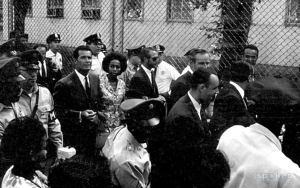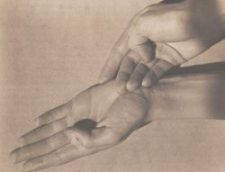Watching The Rockford Files television reruns from the 1970s, there was something reassuring in recent years knowing the show’s star, actor James Garner, was still around.
Garner, who died this past week at the age of 86, had been through cardiac bypass surgery in his 60s and in recent years had also suffered a stroke.
To my mind, that late ‘70’s show about the scrappy, ex-con detective was perhaps the best TV drama ever made. No doubt many talented people, including a talented writing staff, were involved in the series. The show also featured many well-known (or about to become well-known) guest actors, from James Woods to Jill Clayburgh, Lauren Bacall, Joseph Cotten, Rita Moreno, and many others. But, ultimately, it was Garner’s performance as the cool, shrewd Jim Rockford that made the show special.
It might surprise some to know that The Rockford Files also occasionally tackled important social topics. In one particularly prescient episode from 1978, Jim Rockford exposed a corporate domestic surveillance operation that was using secret computer networks to collect massive amounts of private information on Americans. Run with hardnosed, even murderous efficiency, by a ruthless corporate boss played by Jackie Cooper, the fictional episode ended with a real-life warning, set on a black screen, from a member of the U.S. Privacy Protection Commission.
The message (decades prior to Edward Snowden’s NSA expose): “Secret information centers, building dossiers on individuals, exist today. You have no legal right to know about them, prevent them, or sue for damages. Our liberty may well be the price we pay for permitting this to continue unchecked.”
In another episode, the series offered a damning expose of the abuses of civil liberties possible under the U.S. grand jury system. After being repeatedly jailed and victimized by a zealous prosecutor commissioned by a grand jury, Rockford, innocent of any crime but wrongly suspected of knowing something about the disappearance of a union official, delivers a sharp courtroom rebuke to the grand jury’s abuse of his civil rights. Again, the episode ended with a real-life warning, set to black screen, that such civil rights abuses were currently possible under the American legal system.
Garner himself was a progressive-minded individual. He was one of the group of celebrities, including Marlon Brando and Harry Belafonte, who famously joined the March on Washington in 1963 for civil rights, marching hand in hand with actress Diahann Carroll. In recent years, he expressed his low opinion of the U.S. invasion of Iraq and the President who led it. He also never thought much of Ronald Reagan, recalling in his 2011 memoir that Reagan, with whom he had worked in the Screen Actors Guild, never impressed him as very intelligent or qualified for elected office.
Over the years, Garner was known to give money to various liberal and political causes, including some of the more “left” Democratic candidates such as Dennis Kucinich. But he had no pretensions to being a political expert, more than once turning down efforts to recruit him to run for office. He recalls in his memoir how California Democrats once approached him about running for governor in 1990, but quickly lost interest when he made clear the only opinion that mattered to him on the abortion issue was the one of the woman considering one. His bluntness was apparently not considered politically savvy by the professional liberals.
The Americanization of Emily

Tellingly, Garner’s favorite film among the many he made was “The Americanization of Emily,” a 1964 comedic drama with a script by Paddy Chayefsky. Turner Classic Films describes it as a “vanguard anti-war film, poking fun at mindless patriotism years before such films were fashionable or popularly accepted.”
Set in London during WW II, Garner plays Lt. Cmdr. Charlie Madison, a self-proclaimed “coward” who sees little virtue in celebrating war. Charlie is assigned as an adjutant to a Navy admiral who as it turns out later happens to be a bit daft. With D-Day approaching, Charlie’s main concern is his own personal survival, which means staying as far away from the D-Day invasion as possible.
But life is complicated for Charlie, as he’s involved with an English woman, Emily Barham (Julie Andrews) who works for the motor pool. Emily has already lost her husband, father, and brother in the war. Put off at first by Charlie’s unapologetic devotion to his physical survival, Emily later comes to better appreciate the content of his “cowardice,” which in fact isn’t cowardice at all but integrity.
In one scene, Charlie tells Emily’s mother what he really thinks of the business of war, expressing his disdain for those who “make heroes of our dead and shrines of our battlefields, who perpetuate war by exalting its sacrifice.” His brother died at Anzio, he explains, but there was no special heroism to it. And now his mother pretends her son died a “brave death,” he reveals, telling the world how proud she is of him. Consequently, his youngest brother can’t wait to enlist.
“What has my mother got for pretending bravery was admirable?” Charlie asks. “She’s under constant sedation and terrified she may wake up some morning and find her last son has run off to be brave.”
Ironically, for all his efforts to avoid combat, in the end Charlie finds himself recruited into the admiral’s scheme to film the first sailor to die on Omaha Beach (good publicity for the Navy!). In a twist of fate, Charlie with his camera winds up the first man to land on Omaha Beach. He is struck down by a German shell and later reported killed. When it turns out he has survived, the military and the press laud him as another “war hero.” He’s not happy about it.
Shaped by Childhood Hardships
Garner’s progressive sensibilities seemed to reflect his personal character, rooted in a tough childhood and working-class background. As a Korean War veteran, wounded twice, he didn’t care for violence and tried not to glamorize it in his onscreen roles. Offscreen, he had a reputation as an unaffected, modest man who treated others with respect. Indeed, the graciousness with which Garner was known to treat his many fans was a quality in stark contrast to a childhood spent with an abusive stepmother and alcoholic father (his mother died when Garner was only four, likely from a botched abortion, he said). As Garner once said about himself, “I cannot stand to see little people picked on by big people. If a director starts abusing people, I’ll just jump in.” This sensibility for fair play could sometimes play out in other settings, too. In the 1960s, he once witnessed a police assault on a German student protest and was threatened with deportation for publicly comparing the police to Nazis.
From television shows like Maverick and The Rockford Files, to films like “The Great Escape,” “Murphy’s Romance,” “Marlowe,” “The Notebook,” and so many more, Garner established himself as one of those actors who brought a naturally engaging presence to the screen. In Maverick and Rockford especially, as Randy Barnett of Georgetown University Law Center observes in the Washington Post, Garner created characters that people felt they knew, something only the most skilled actors can expect to accomplish.
“Garner’s two most famous characters set an example of manliness at two stages of life,” writes Barnett, “smart, tough, funny, a little cynical and knowing but with a pinch of optimism and even naivete, respectful towards women, willing to stand up for himself or others when pushed, but only after first looking for a way out of conflict, a sense of justice.”
In the 1960s, John Wayne once said he considered Garner the greatest male actor in the country, better than Marlon Brando, George C. Scott and others. He cited Garner’s versatility in different genres as one reason. But Garner himself always downplayed his acting skills, even admitting terrible stage fright kept him from live theater.
In an age when the media fosters a celebrity culture that is both trivial and overblown, there was always the sense with James Garner that both feet remained firmly planted on the ground. In the end he was just a regular guy from Oklahoma, one no doubt with talent, good looks, and an exceptional career, but also just a man married to the same woman for more than five decades, with daughters and friends from all walks of life that he loved.
Just a good man, like a lot of other good men.


NY Yankee announcer Ken Singleton, a pretty good ballplayer in his own right back in the day, responding to a comment from fellow Yankee broadcaster David Cone early in this 2015 season, pointed out that the reason big league baseball so frequently looks so easy is because the players playing it are so very good. Along the same lines, it took most people way too long to realize just how special and terrific James Garner really was, perhaps because he made it look so easy for so long and most of us just took him for granted. The reality is there’s never been anyone better than him, and he belongs right there with all the legends from any and all eras and generations. How lucky we were to have had him for so many years, & in particular, once he became a “movie star” following Maverick, on the “small” screen, first as Frank/Jim Nichols, and then, breathing the breath of life into the epic Jim Rockford. On the big screen, Garner may not have had his pick of the “big” roles in the “important” films, but whatever project he was in & whatever character he played, the man just brought him to life while making it all seem so easy — and memorable. Thanks so much for sharing your thoughts on one of the most underrated great actors in American film and TV history. James Garner may be gone, but he will surely never be forgotten. RIP Jimbo!!!
Thank you, Bruce. I completely agree with your remarks. Well said!